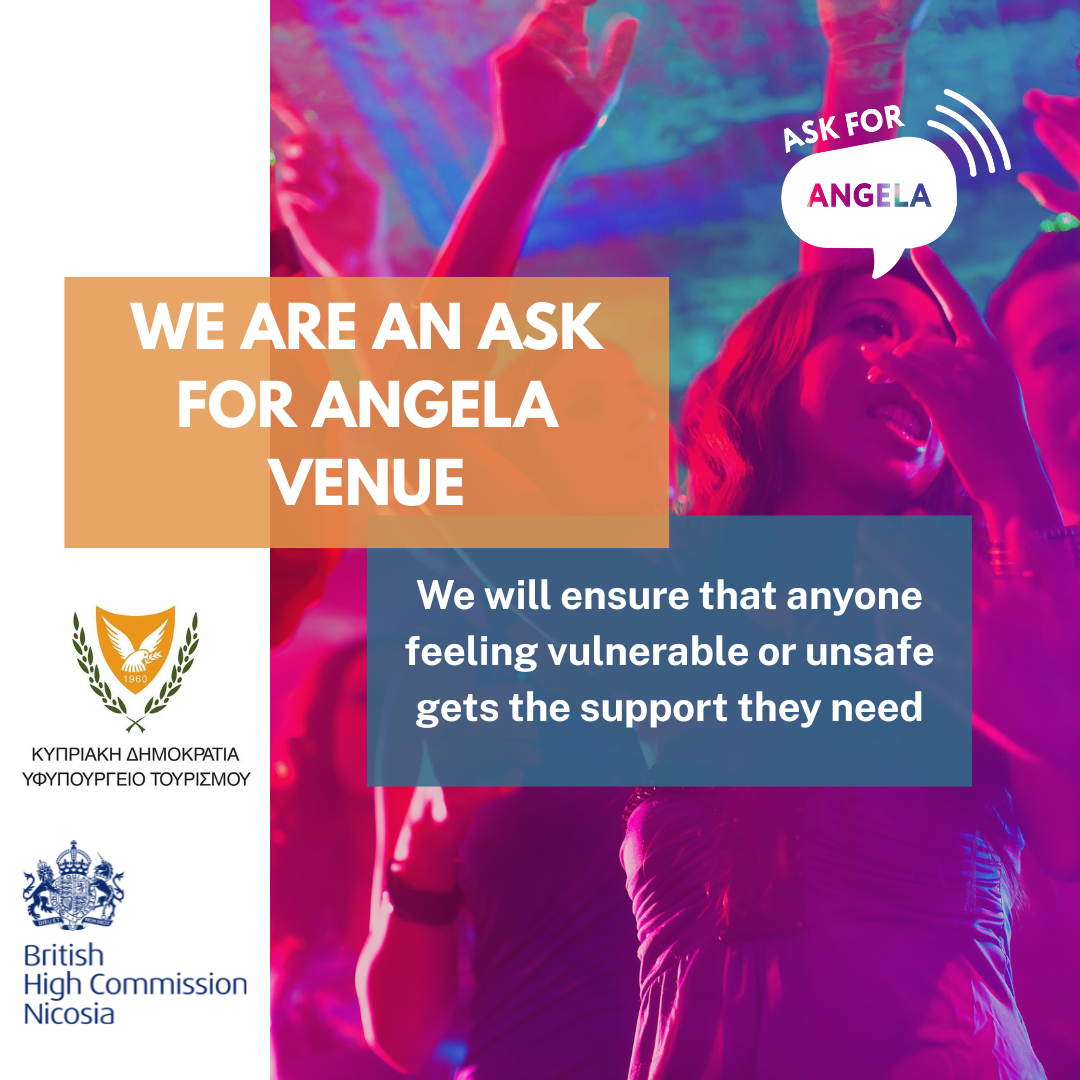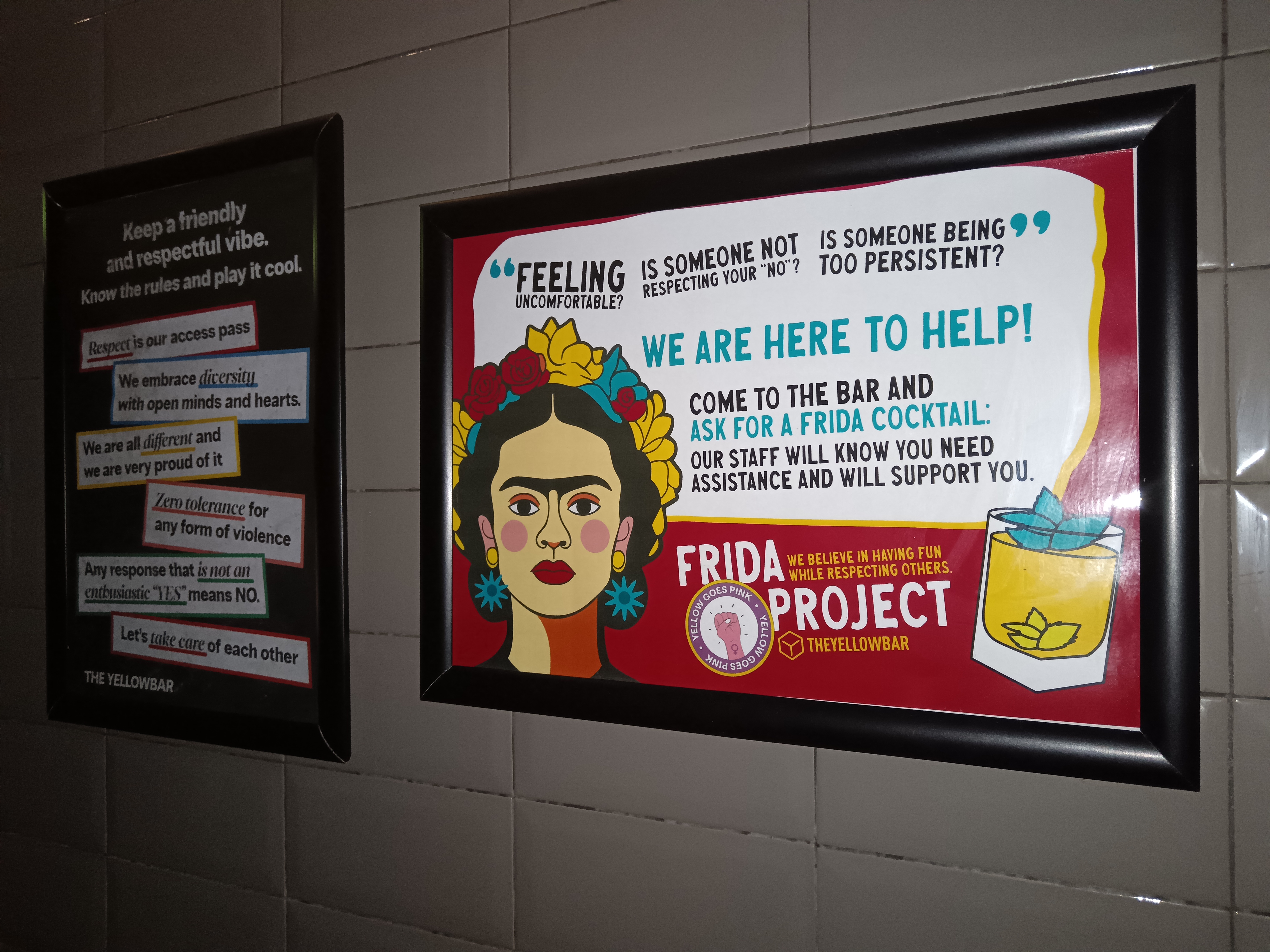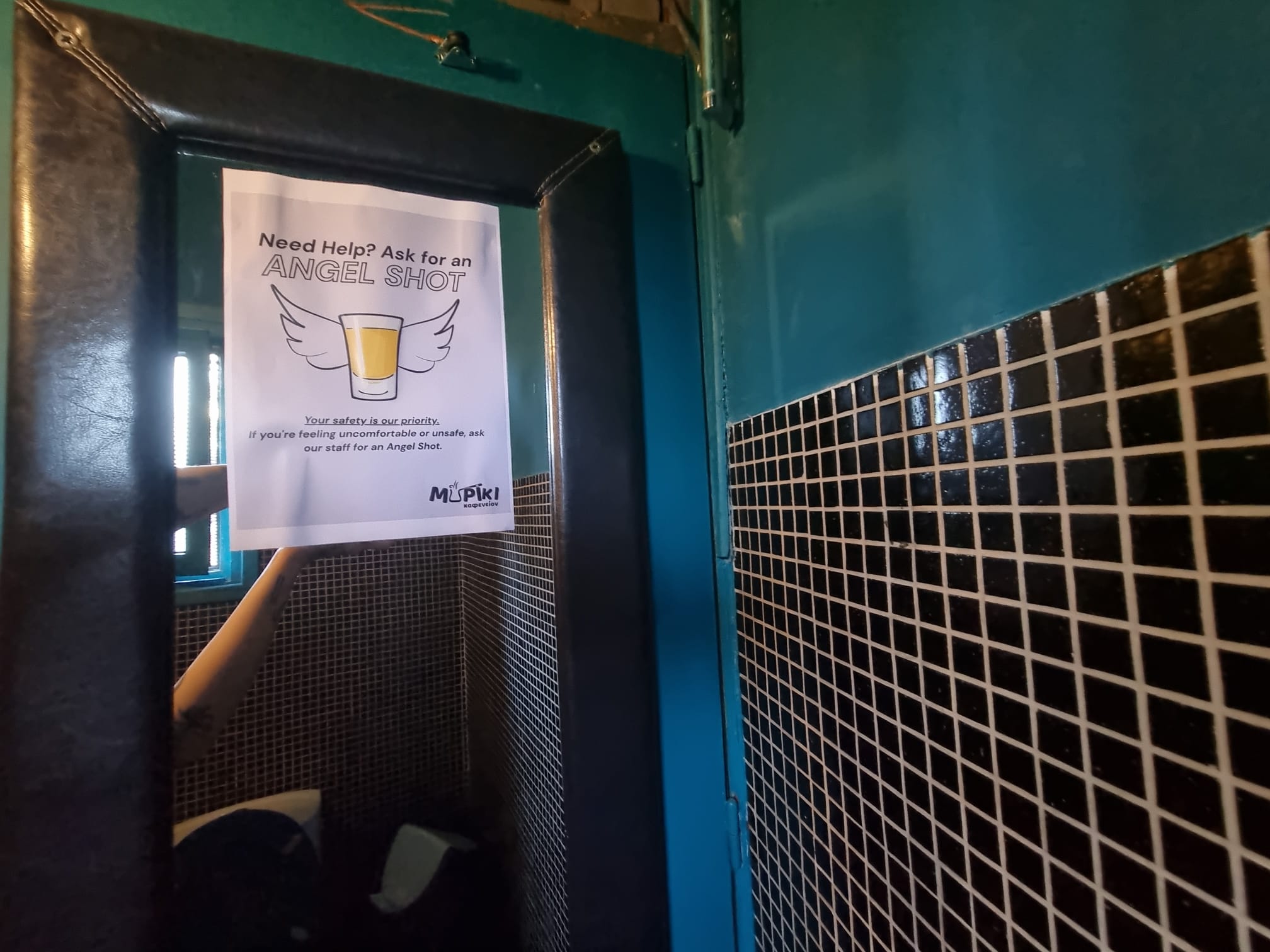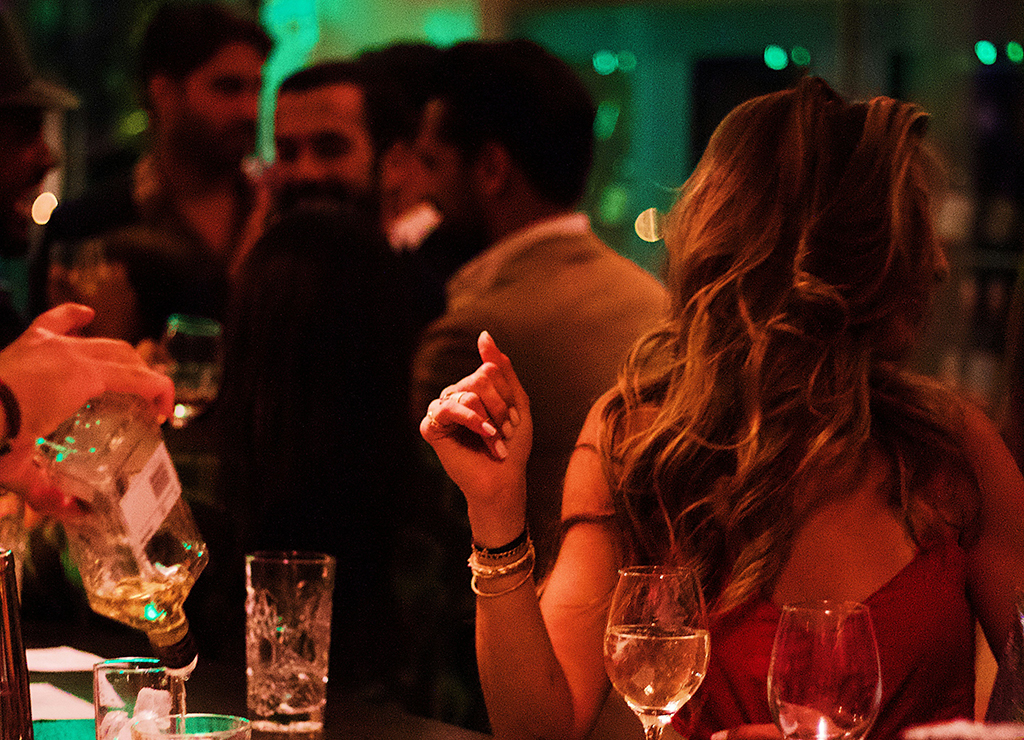Years after EU, Cyprus follows scheme to create fun but safe environments at venues
Cyprus this week confirmed it did not join a mostly global scheme to protect people in nightspots until late March 2025, leaving police in the dark and tourists at risk. After years of delay, the island has finally joined the push for safer nights out. But gaps remain in training and public awareness, leaving some tourists and locals exposed.
As the summer season swells with visitors, pressure is mounting on authorities and businesses to close those gaps swiftly and bring the island’s nightlife safety in line with European standards.
The UK has led the way with the ‘Ask for Angela’ scheme, where guests ask for ‘Angela’ to get help quietly. In several countries, similar codes help bar-goers seek help discreetly. In the US, a person might order an ‘Angel Shot’ at the bar if they feel unsafe. Staff, trained to spot these signals, might call security, help the guest leave, or deal with the person causing trouble.
Different countries use their own codewords. In Germany, people ask ‘Luisa ist hier (Luisa is here)?’ while in Italy, someone might order a ‘Frida cocktail’ to show they need help. Despite the different names, all these schemes aim to let people signal they’re in danger without alerting potential predators. This system is now used in most European countries, the US, New Zealand and elsewhere.
Cyprus joined the European Union in 2004. Yet it remained outside major safety initiatives that help vulnerable people in bars and clubs, despite being a crowded country full of different nationalities and tourists.
The vulnerable persons unit of the police confirmed to the Cyprus Mail that Cyprus, although an EU member, was not part of the campaign to safeguard people in nightlife spots.

There is “no framework established so far for the adoption of safety codes such as ‘Angel Shot’,” the deputy ministry of tourism added. “However, as the deputy ministry of tourism, we recognise the importance of such initiatives and we are ready to consult with competent authorities as well as industry stakeholders to examine ways in which similar practices could be developed, implemented and supported.”
The ministry added it supported “actions which boost safety and the quality of visitors’ experiences” and stood ready to work with other bodies on information campaigns and training for businesses.
And, general manager of the Association of Cyprus Tourist Enterprises (Stek) Chrisemily Psilogeni told the Cyprus Mail that Stek in collaboration with the British High Commission had invited managers for a workshop on how to train their staff in hotels and businesses on the Ask for Angela initiative.
“The #AskforAngela initiative, already well known among British nationals, aims to strengthen the safety of tourists, especially British visitors,” she added.
The British High Commission launched the campaign this spring to promote the scheme.
“From April 2025, a new campaign began to raise awareness among travellers,” Psilogeni said.
According to Stek, there remain significant gaps in measures designed to protect visitors in certain venues. They warn that prevention efforts and awareness campaigns are still insufficient, and that staff working in hotels and leisure centres often lack the training needed to identify or support people who could be at risk.
Training from Stek and the Ask for Angela team included online workshops in English, free of charge. Businesses received certificates, posters, and social media content. They were also listed on the UK government’s travel advice website.
“The issue is that approaching a security guard is another hurdle,” said Anna, a 27-year-old Austrian woman who has lived in Cyprus for 10 years comparing nightlife safety in Vienna and Nicosia. Anna mostly goes out in Nicosia and Limassol but sometimes visits Ayia Napa and Paphos.
“If you’re caught in an unpleasant situation with a man who’s bothering you, heading to the bar, maybe even with him, and ordering a drink feels much safer.”
She explained why the Angel Shot is useful: “By ordering a specific, coded drink at the bar, guests can discreetly signal that they feel unsafe. The bartender, trained to recognise these signals, can then notify security or initiate further steps to defuse the situation – whether that means removing the harasser, arranging a safe way home, or simply checking in.”

Some bars in Cyprus prefer handling things differently. A well-known venue in Ayia Napa told the Cyprus Mail it does not use international code systems. “In Cyprus, particularly in Ayia Napa, the situation is quite different from that of other countries. The culture here is built on attentiveness and proactive guest care.
“Cypriot hospitality discourages any form of harassment or misconduct,” the venue added.
However, not all venues reject discreet safety codes.
In Nicosia, owner of To Briki café Vassilis Pafitis said he has a quiet system in place. “Yes, it was used,” he told the Cyprus Mail.
“I like it, as long as it’s for safety reasons.”
He said staff know how to spot signals from customers and act discreetly.
“Of course, we know how to help them safely. If someone informs us, we keep our eyes open. We look at the behaviour of the other person.”
To Briki, open since 1995, has had the system in place for a year but has never needed it in a serious emergency.
“I just wish we didn’t need it at all, but I consider it necessary for safe operation, I’m happy to have it,” Pafitis said.

Peter Lewis, one of the owners of The Square Bar in Ayia Napa and The Live Lounge in Cardiff has worked in hospitality for over 15 years. “While code words are not something that I have really come across with regard to customer safety, we at Live Lounge pioneered, alongside South Wales police, vulnerability training for staff in hospitality. Creating a fun but safe environment at our venues has always been important to us,” he said.
“The course focused on recognising the signs that someone may be vulnerable to predatory behaviour and also recognising potential ‘predators’,” he said.
This training is now provided free for all venues in Cardiff.
“Recognising if someone is potentially in a problematic situation is obviously very important but how the situation is approached also requires skill. It is vital that the person feels comfortable asking for help. Maintaining a friendly yet secure environment can offer this.”
Meanwhile, some clubs in Cyprus say they have their own ways of keeping people safe. At Sliip, a floor manager monitors the atmosphere and steps in if needed.
Manager Barbara Chatzikosma said that although the club does not currently use code-word cocktails, staff are trained to step in when needed.
“We don’t have something like that,” she said, referring to the cocktail code, “because we have a member of the safety team on the dancefloor.”
That member is part of what the club calls ‘vibe control.’ They wear a visible badge and move throughout the club, on the dancefloor, balcony, bar, and even near the toilets, to monitor the atmosphere and spot anyone who may need help.
She confirmed there have been “many cases” where people have approached vibe control for help, including incidents involving sexual harassment. Siip Club’s regular visitors are aware of the system and trust the staff, she said.
“People come often. They know us and feel safe talking to us. Tourists are sometimes more confused, but when we explain our policy, the response is very positive.”
While Siip has not yet introduced the code-word cocktail system such as asking for an ‘Angela’ to signal distress, Chatzikosma said she is interested in joining the new safety training initiative supported by Stek.
“We are trying to create a safer space and a club experience where everyone feels comfortable,” she said.
“We cannot make a place perfectly safe, but we do our best.”






Click here to change your cookie preferences